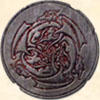Chapter 1 - Non-weapon Proficiencies
Alchemy Non-Weapon Proficiency
A Mage with this skill is not necessarily an alchemist or a specialist in the school of alchemy, but he is well-versed in the physical aspects of magical research and the properties of various chemicals, reagents, and substances. If the character has access to a decent laboratory, he can use his knowledge to identify unknown elements or compounds, create small doses of acids, incendiaries, or pyrotechnical substances, or (if he is 9th level or higher) brew potions.
Refer to the DM notes for information on the size, cost, and equipment of an alchemical laboratory. Naturally, a wizard may be able to defray some of the costs by sharing his facilities or striking some kind of deal with a local wizard’s guild; the DM has the details.
Identifying substances or samples of unknown material requires 1 to 4 days and a successful proficiency check. Simple materials, such as powdered metals or ores, provide the alchemist with a +1 to +4 bonus on his check, at the DM’s discretion. Rare, complex, or damaged or incomplete samples might impose a -1 to -4 penalty.
Creating dangerous substances such as acids or burning powders takes 1d3 days and 20-50 gp or (1d4+1) x 10 per vial, or 2-5 days and 50-100 gp or (1d6+4) x 10 per flask. The alchemist must pass a proficiency check in order to successfully manufacture the substance; failing the check with a natural roll of 20 results in an explosion or other mishap that exposes the character to the effects of his work and damages the laboratory for 10%-60% or 1d6 x 10% of its construction value.
Acid inflicts 1d3 points of damage per vial, or 2d4 points of damage per flask, and continues to injure the victim the next round; the vial inflicts 1 point of damage in the second round, and the flask causes 1d3 points of damage. In addition, the flask is large enough to splash creatures near the target; see Grenade like Missiles in the DMG . Acid can also burn out a lock or clasp, forcing an item saving throw.
Incendiaries ignite when exposed to air. A flask of incendiary liquid inflicts damage as per burning oil (2d6 points in the first round and 1d6 in the second.) Again, refer to the DMG . Incendiary powders or liquids can easily start fires if used on buildings, dry brush, or other such surfaces.
Pyrotechnic materials resemble incendiaries, but create clouds of billowing smoke. A vial creates a cloud of smoke 5 feet high by 5 feet wide by 5 feet deep, obscuring vision. A flask creates a cloud of smoke 10 feet high by 10 feet wide by 10 feet deep. The clouds persist for 1d3 rounds, depending on the wind and other conditions.
Alchemy is an expensive hobby, to say the least, and it can be a dangerous one as well. If a player character is abusing this proficiency (i.e., walking into a dungeon with 10 flasks of acid in his pack), the DM can require item saving throws for all those beakers anytime the character slips, falls, or is struck by an opponent.
Mages who specialize in the school of alchemy gain a +2 bonus to their proficiency rating in this skill.
